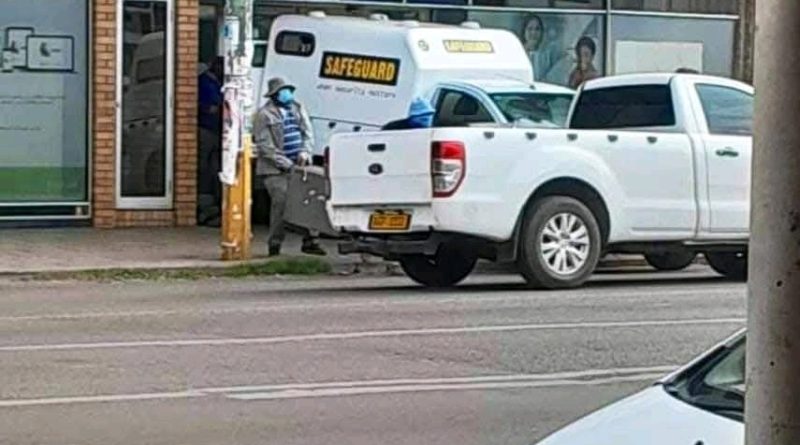Police Unmask Trend Behind Cash Heists
NEARLY all cash heists across the country have been traced back to inside jobs, where employees, either knowingly or unknowingly, provide crucial information to criminals.
This disturbing trend has been confirmed by police reports, and a recent breakthrough in the US$4 million Ecobank cash heist has brought the issue into sharp focus. According to national police spokesperson, Commissioner Paul Nyathi, the risk of a heist significantly increases when the financial stakes are high.
“Through our investigations, we have discovered that it often comes down to a trend where employees share information, sometimes willingly and at other times without realising the consequences,” he said.
Commissioner Nyathi explained that this pattern of betrayal is especially common in companies that handle large sums of money, where the temptation to leak sensitive information can be overwhelming. “Companies such as those involved in Cash-In-Transit (CIT) operations, banks, supermarkets and mines are particularly at risk of losing substantial amounts of money,” he said.
He emphasised the key role played by security companies in preventing these insider threats. “The main culprits are often those employed by security firms. To avoid hiring individuals with criminal tendencies, these companies must carry out thorough background checks,” said Commissioner Nyathi.
“It is, therefore, the responsibility of each company to ensure that all employees are properly vetted to prevent criminal activity.”
He added that the implications of this growing trend are far-reaching and stressed the need for companies to take proactive measures to mitigate risk.
Commissioner Nyathi noted that by conducting rigorous background checks and fostering a culture of transparency and accountability, employers can reduce the risk of insider involvement.
“Routine or impromptu staff reshuffling is vital, as it prevents employees from becoming too comfortable in one role, which could lead to the leaking of sensitive information,” he said.
“Anyone found to have shared information that facilitates a heist can be charged and sentenced to prison,” said Commissioner Nyathi. He acknowledged the complexity of these cases, as employees may be complicit either consciously or unwittingly.
“While some are driven by greed, others may not fully understand the implications of their actions. As we assess this trend, it’s important to recognise the human element and to respond with both empathy and vigilance,” he said.
“By understanding the vulnerabilities that contribute to insider crimes, we can move towards creating a safer and more trustworthy environment for all.”
He added that as police continue their investigations and efforts to curb cash heists, it is essential that both companies and individuals remain alert.
“By prioritising transparency, trust, and robust background checks, we can minimise the risk of inside jobs and work towards a more secure future,” said Commissioner Nyathi.
“When the stakes are high, the likelihood of a heist is even higher. The time has come for us to act collectively and decisively to prevent these crimes from occurring in the first place.”
When asked about the extradition of the Vumbunu brothers from South Africa, Commissioner Nyathi said the process is ongoing and requires patience.
“Details will be provided in due course,” he said.
The dramatic arrest of brothers Abraham and Elijah Temayi Vumbunu in South Africa this week has reignited public interest in the sensational Ecobank case.
Their capture, the result of collaboration between the South African Police Service (SAPS) and the Zimbabwe Republic Police (ZRP), is being hailed as a significant breakthrough in a case many believed had gone cold.
The brothers, now nicknamed the “Terror Twins”, are expected to be extradited to Zimbabwe to face charges related to the Ecobank heist and potentially several others.
They have been linked to a spate of armed robberies in Bulawayo, allegedly targeting banks, money transfer agencies, and mining operations. *herald*



